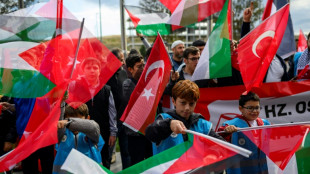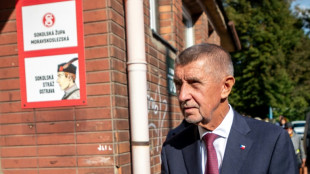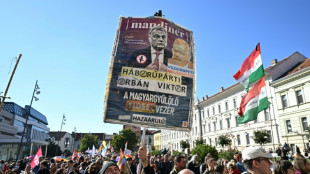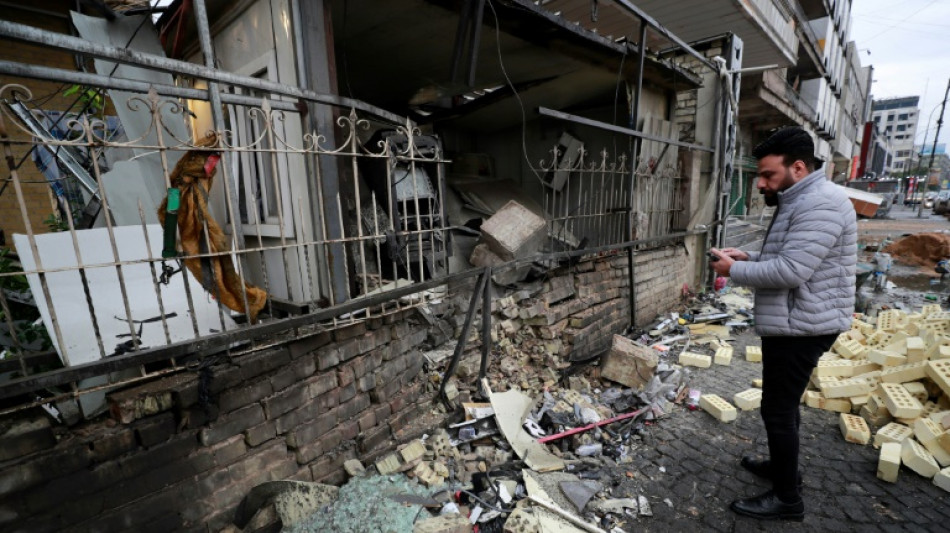
-
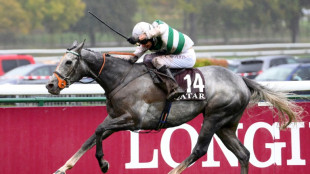 Consent gives Morris and Prescott another memorable Arc weekend
Consent gives Morris and Prescott another memorable Arc weekend
-
Georgian police fire tear gas as protesters try to enter presidential palace

-
 Vollering powers to European road race title
Vollering powers to European road race title
-
Reinach and Marx star as Springboks beat Argentina to retain Rugby Championship

-
 Russell celebrates 'amazing' Singapore pole as McLarens struggle
Russell celebrates 'amazing' Singapore pole as McLarens struggle
-
Czech billionaire ex-PM's party leads in parliamentary vote
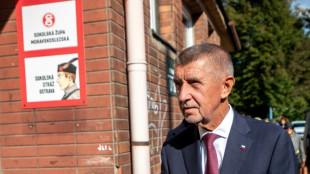
-
 South Africa edge Argentina to retain Rugby Championship
South Africa edge Argentina to retain Rugby Championship
-
'Everyone's older brother': Slipper bows out in Wallabies loss

-
 Thousands rally in Georgia election-day protest
Thousands rally in Georgia election-day protest
-
Sinner starts Shanghai defence in style as Zverev defies toe trouble

-
 Russell takes pole position for Singapore Grand Prix as McLaren struggle
Russell takes pole position for Singapore Grand Prix as McLaren struggle
-
Robertson praises All Blacks 'grit' in Australia win
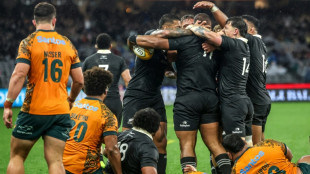
-
 Government, protesters reach deal to end unrest in Pakistan's Kashmir
Government, protesters reach deal to end unrest in Pakistan's Kashmir
-
Kudus fires Spurs into second with win at Leeds

-
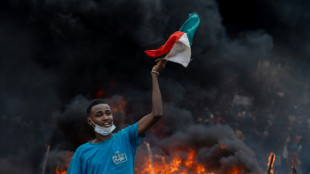 Rival rallies in Madagascar after deadly Gen Z protests
Rival rallies in Madagascar after deadly Gen Z protests
-
Egypt opens one of Valley of the Kings' largest tombs to public
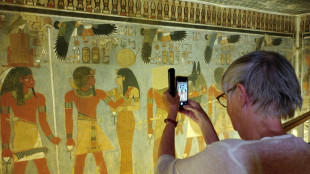
-
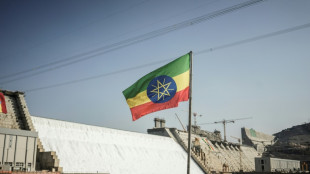 Ethiopia hits back at 'false' Egyptian claims over mega-dam
Ethiopia hits back at 'false' Egyptian claims over mega-dam
-
Sinner breezes past Altmaier to launch Shanghai title defence

-
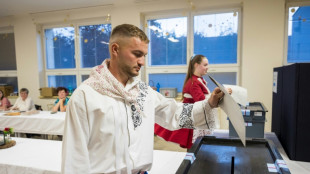 Czech ex-PM set to win vote, putting Ukraine aid in doubt
Czech ex-PM set to win vote, putting Ukraine aid in doubt
-
All Blacks down Wallabies to stay in Rugby Championship title hunt

-
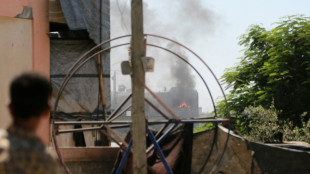 Gazans hail Trump ceasefire call as Hamas agrees to free hostages
Gazans hail Trump ceasefire call as Hamas agrees to free hostages
-
Zverev echoes Federer over tournaments 'favouring Sinner, Alcaraz'

-
 Yamal injury complicated, return date uncertain: Barca coach Flick
Yamal injury complicated, return date uncertain: Barca coach Flick
-
Conservative Takaichi set to be Japan's first woman PM
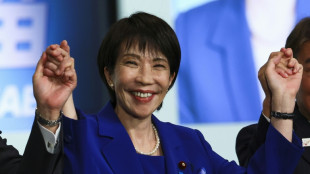
-
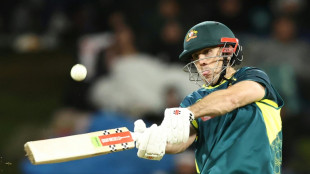 Marsh ton powers Australia to T20 series win over New Zealand
Marsh ton powers Australia to T20 series win over New Zealand
-
Verstappen lays down marker in final Singapore practice
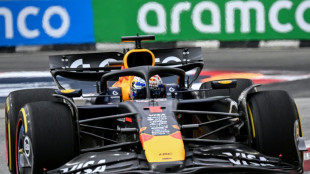
-
 French air traffic controllers cancel three-day strike
French air traffic controllers cancel three-day strike
-
'A bit unusual': Russia's Sochi grapples with Ukrainian drones
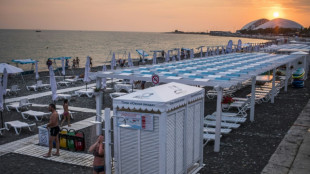
-
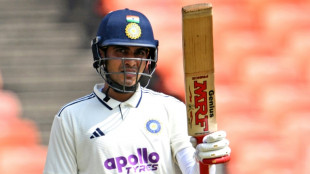 Test skipper Gill replaces Rohit as India ODI captain
Test skipper Gill replaces Rohit as India ODI captain
-
Israel troops still operating in Gaza after Trump, hostage family appeals
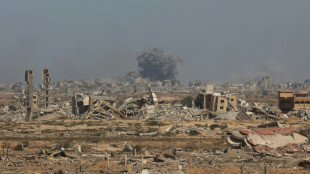
-
 Jadeja stars as India crush West Indies in first Test
Jadeja stars as India crush West Indies in first Test
-
Pogacar eyes 'explosive' Euros race with Vingegaard, Evenepoel

-
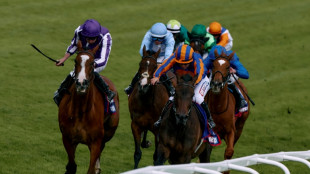 Minnie Hauk, Graffard, Japan vie for Prix de l'Arc de Triomphe glory
Minnie Hauk, Graffard, Japan vie for Prix de l'Arc de Triomphe glory
-
Three Japanese tales of Arc heartbreak
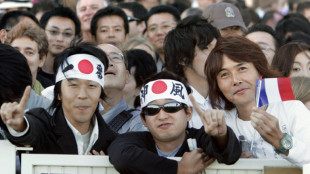
-
 Anisimova thrashes Gauff in 58 minutes to make China Open final
Anisimova thrashes Gauff in 58 minutes to make China Open final
-
Flights resume at Munich airport after second drone scare
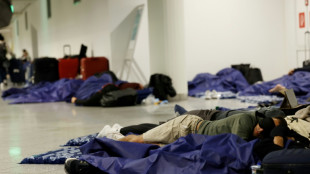
-
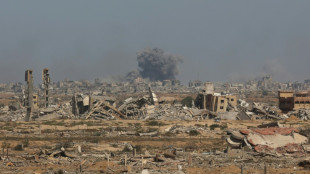 Hostage families urge immediate end to Gaza war
Hostage families urge immediate end to Gaza war
-
Czech ex-PM who wants to halt Ukraine aid set to win vote
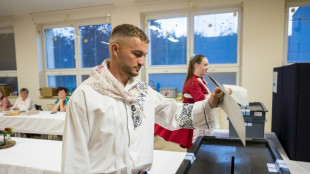
-
 India close in on innings win with West Indies 66-5 in first Test
India close in on innings win with West Indies 66-5 in first Test
-
Sanae Takaichi, Japan's first woman PM-to-be
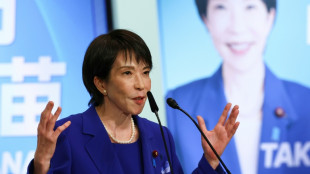
-
 China hawk Takaichi set to be Japan's first woman PM
China hawk Takaichi set to be Japan's first woman PM
-
Taylor Swift breaks streaming records with new 'Showgirl' album

-
 'I found hell': the women ensnared in Albania's global sex trade
'I found hell': the women ensnared in Albania's global sex trade
-
China hawk Takaichi, youthful Koizumi in Japan ruling party runoff

-
 Marquez ninth on Indonesia MotoGP grid as Bezzecchi sets lap record
Marquez ninth on Indonesia MotoGP grid as Bezzecchi sets lap record
-
Swedes stock up on food as fears of war deepen
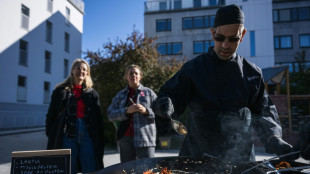
-
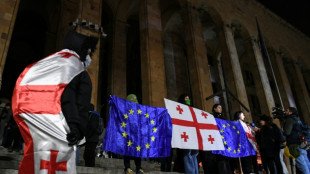 Georgia votes in local polls as opposition urges 'last-chance' protest
Georgia votes in local polls as opposition urges 'last-chance' protest
-
Sean Combs sentencing: Tears, pleas and cutting reminders of guilt
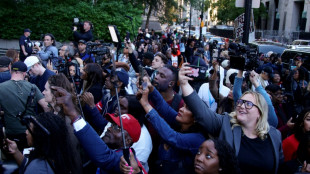
-
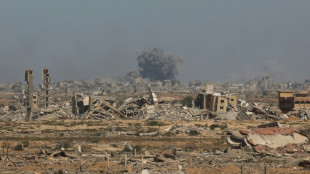 Hamas says ready for peace talks, Trump urges Israel to halt Gaza bombing
Hamas says ready for peace talks, Trump urges Israel to halt Gaza bombing
-
Under-fire WNBA chief 'disheartened' by criticism, vows to 'do better'


As Shiite rivals jostle in Iraq, Sunni and Kurdish parties targeted
As Iraq's Shiite leaders jostle to secure a majority in the newly-elected parliament, Sunni and Kurdish minorities have been caught up in a spate of warning grenade attacks, analysts say.
In recent days, unknown attackers have hurled grenades at Kurdish and Sunni targets including political party offices and a lawmaker's home -- groups that could help Shiite cleric Moqtada Sadr win the critical parliamentary majority needed to make his choice of prime minister.
"It is a way of punishing the forces that have allied with Moqtada Sadr to form a parliamentary majority," said political scientist Ihsan al-Shammari.
"Their message is political," he added, calling the attacks "part of the mode of political pressure" adopted by some groups.
In multi-confessional and multi-ethnic Iraq, the formation of governments has involved complex negotiations since the 2003 US-led invasion toppled dictator Saddam Hussein.
- Horse trading for power -
No single party holds an outright majority, so the next leader will be voted in by whichever coalition can negotiate allies to become the biggest bloc -- which then elects Iraq's president, who then appoints a prime minister.
In previous parliaments, parties from Iraq's Shiite majority have struck compromise deals to work together and form a government, with an unofficial system whereby the prime minister is Shiite, the president is a Kurd and the speaker of parliament is Sunni.
But Sadr, who once led an anti-US militia and who opposes all foreign interference, has repeatedly said the next prime minister will be chosen by his movement.
So rather than strike an alliance with the powerful Shiite Coordination Framework -- which includes the pro-Iran Fatah alliance, the political arm of the former paramilitary Hashed al-Shaabi -- Sadr has forged a new coalition.
That includes two Sunni parties, Taqadum and Azm, as well as the Kurdistan Democratic Party (KDP).
It has infuriated the Coordination Framework -- who insist their grouping is bigger.
In recent days, grenades have been lobbed at the home of a Taqadum lawmaker, as well as at the party offices of Azm, Taqadum and the KDP in Baghdad.
On Sunday, flashbang stun grenades were hurled into the branches of two Kurdish banks in the capital Baghdad -- wounding two people.
The heads of both banks are said to be close to political leaders in Iraq's autonomous northern Kurdistan region.
There has already been unrest following the election, with Prime Minister Mustafa al-Kadhemi escaping unhurt when an explosive-packed drone hit his residence in November during what his office called an "assassination attempt."
No group has claimed the attack.
While the culprits of the recent grenade blasts have also not been identified, a security source charged that the attacks "convey the messages of the parties that lost in the elections".
The purpose, the security source claimed, is to "disrupt the formation of the government" --- implicitly pointing to the Coordination Framework, and in particular the Fatah alliance.
- 'They threaten violence' -
Fatah lost much of its political capital in the October 10 polls, having secured only 17 seats, compared to the 48 it had before.
It alleged the vote was rigged, but Iraq's top court rejected a complaint of electoral irregularities filed by Hashed.
Hashed, which maintains an arsenal of weapons, fighters and supporters, has sought a variety of ways to make itself heard outside parliament, including demonstrations and sit-ins.
"Rather than accepting defeat at the polls, they threaten violence," said Lahib Higel, of the International Crisis Group.
Sadr has considered striking deals with certain members of the Coordination Framework, such as Fatah chief Hadi al-Ameri, at the expense of other figures in the bloc, such as former prime minister Nuri al-Maliki, Higel said.
But such an arrangement "is not Iran's preference" Higel argued, adding that Tehran "would rather see a consensus that includes all Shiite parties".
However, she said Iran could settle for a deal where Shiite parties held sway.
"It is possible that they (Iran) would accept a scenario where not everyone is represented in the next government, as long as there is a sufficient amount of Shiite parties, including some Hashed factions," she said.
Y.Bouchard--BTB

